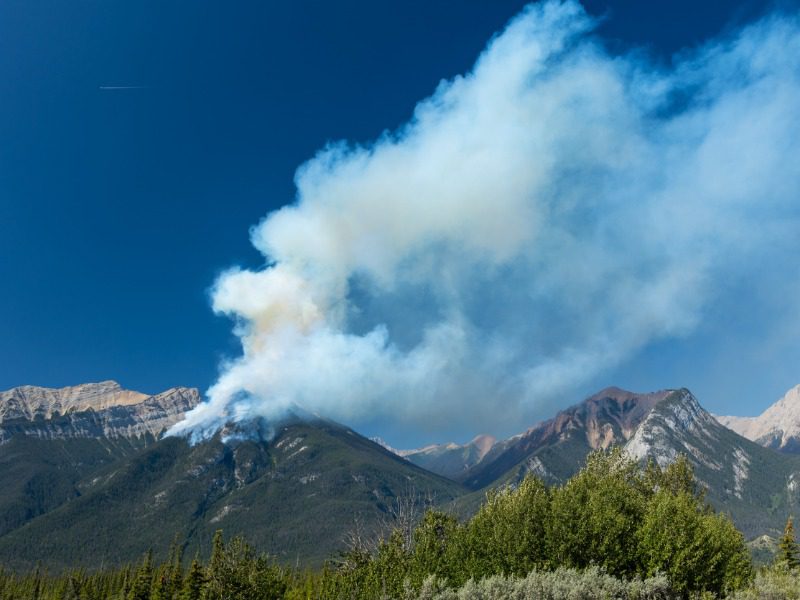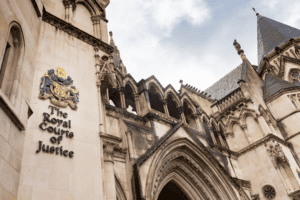Wildfire situation in Slocan Valley suffers setback as cold front chills fire crews’ efforts

The wildfire situation in the Slocan Valley has gone from bad to worse as a cold front moving through the region brought high winds, fanning the flames and causing significant wildfire growth, a Southeast Fire Centre official stated Thursday night.
In an online media availability session — hosted by the Regional District of Central Kootenay — on Thursday night Claire Allen, deputy manager of Wildfire Prevention with the B.C. Wildfire Service, admitted that Wednesday and Thursday were challenging days to cap off a very challenging week in Area H (Slocan Valley) as fire crews lost some ground in the fight to control five major out-of-control wildfires, forcing evacuation orders in several regions and communities such as Silverton, leaving many more under evacuation alert.
She said — via a Zoom connection — that a cold front moving through the area brought with it some very sustained and strong wind gusts which challenged firefighting operations.
“And it was responsible for significant growth on all of the wildfires in the area. These winds, as well as dry forest fuel conditions from a sustained drought, as well as sustained temperatures, combined as the main drive behind some of the aggressive growth that we saw,” she said.
The cold front forced the Wildfire Service to change its tactics for the safety of its first responders, with ground crews pulled back to safe areas on many of the fires in the region. Of the 146 new fires detected in the last seven days in the region — arising out of over 1,800 recorded lightning strikes — 79 were classified as out of control, with 23 of those fires no longer in that category due to initial attack success.
However, wherever possible the wildland firefighter crews that were pulled back were replaced with structural protection crews that were able to do their work to protect critical infrastructure, as well as communities in the area, and they worked through the overnight period, Allen added.
Also on the negative side of the ledger is the smoke that has permeated the valley, causing visibility problems for safe flying conditions for the fixed wing and rotary wing aviation fleet.
“That has limited the aviation fleet’s effectiveness on some of the fires. However, whenever possible, we do use aviation resources to always check the conditions and we do deploy them once it is safe,” said Allen.
The amount of fire resources on hand and the state of ongoing fires continues to be assessed. Around 80 per cent of the wildfires in the Kootenay region have and are occurring around Slocan, Kootenay and Arrow lakes, with 95 per cent suspected to be lightning caused and nine suspected to be human caused (and under investigation).
Although 34 of the fires have been declared as out in the last seven days, almost 11,000 hectares have been burned in the area in the last week.
Some respite is on the way, Allen stated, in the form of a lowering of the daily temperature — returning to more seasonal conditions — but not a lot of precipitation was expected. As well, Allen hinted that additional resources are available to come in to deal with any new fires that may occur.
She encouraged people to report any new fire starts in the area with more potential lightning strikes possible (*5555 on a cell phone) at 1-800-663-5555 or use the BC Wildfire Service application to report any new fire activity.
Dan Seguin, emergency operations centre director for the RDCK, said four evacuation orders were handed down Wednesday night — for a total of six in place — with four in Area H and two in Area D, affecting 557 properties. There are also two evacuation alerts in place for the region of New Denver to Rosebery and in and around Slocan, for a total of 1,085 properties.
“If you are on alert it is the time to be prepared. Prepare yourself and prepare your family accordingly. You have to be ready to leave in a moment’s notice,” he said.
If an evacuation order is handed down it means residents must leave that area immediately. Information is on the RDCK website for support services.
Despite the number of people on evacuation orders and alerts, there have been no structural impacts or loss of property, Allen noted.
Feature image by iStock.com/Ricky Deacon




